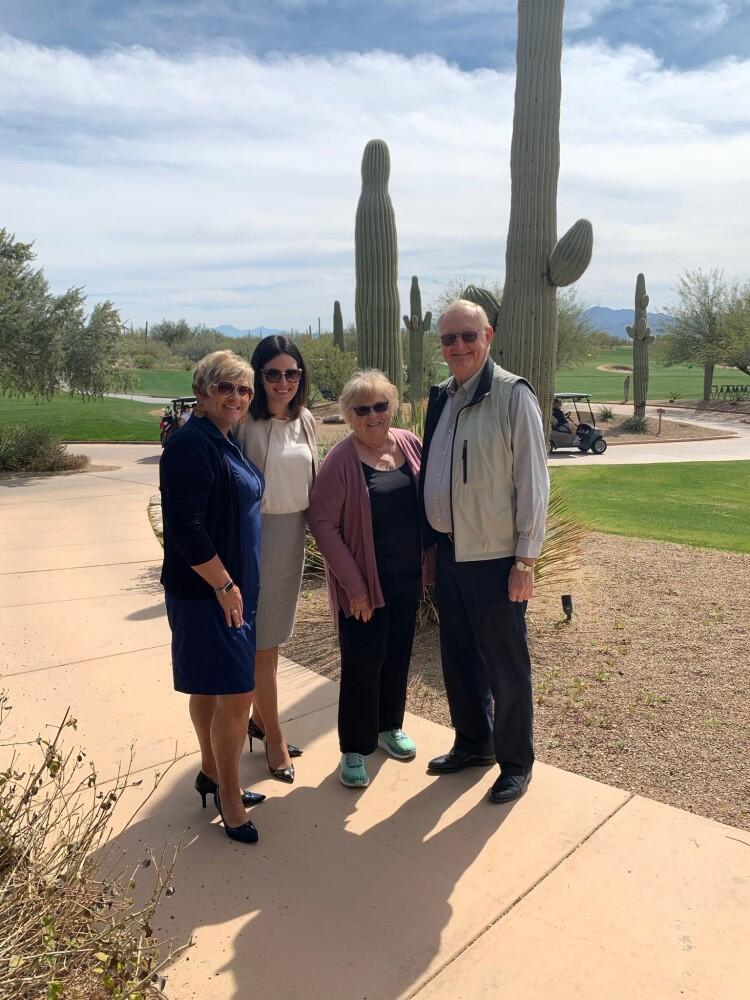ACES alum’s gift encourages professional development for ABE students

URBANA, Ill. - A lot can change in 100 years, and a lot has, especially in the agriculture industry. Much of this growth is thanks to the research and innovation of brilliant individuals who attended schools like the University of Illinois Urbana-Champaign and its highly ranked Department of Agricultural and Biological Engineering (ABE), which turns 100 years old this year.
The innovative work and research ABE students do is often made possible by generous contributions from alumni who are passionate about seeing ABE students succeed. And that is exactly what prompted ABE alumnus Allen Rider (PhD ‘73) and his wife, Rene Rider, to give to the ABE department in the College of Agricultural, Consumer and Environmental Sciences and the Grainger College of Engineering.
“The University of Illinois was instrumental in our success,” Allen says. “We’ve had a very good life with a good lifestyle, and we hope that providing this contribution will give other students the same opportunities that we had.”
That’s why Allen and Rene established the Rider Family Professional Development Scholarship Fund which will provide undergraduate and graduate engineering students with resources to enhance their professional development or other scholarly opportunities.
Allen grew up on a farm in northwestern Colorado and attended Colorado State University where he met Rene, who was raised in a military family and frequently moved around the country. Allen served in the Army for a couple of years before coming to U of I.
Once at U of I, they developed a routine—Allen worked on his Ph.D. in agricultural engineering, and Rene worked at Illini Tower while their first son went to nursery school. Both admit that routine changed near the end of the degree process with the birth of their second son, another fond memory of the U of I.
Today, the Riders praise U of I, specifically the faculty.
“Probably as important as anything was the professional atmosphere,” Allen says. “The faculty was a great group of people to both Rene and me. We learned a lot about being professional and how to operate.”
Allen had an assistantship and fellowship at U of I, and says his connections with U of I faculty helped him get a job as a full-time faculty member at Oklahoma State University after earning his doctorate. That position eventually led to an opportunity for Allen to work as a senior research engineer at New Holland, an agricultural machinery company that specializes in tractors, combines, and more.
Allen says New Holland allowed him to work closely with Rene, who helped build relationships and interact with a variety of people including engineers, plant workers, sales and marketing personnel, and dealers and their spouses.
“She was able to talk to people of many different backgrounds and many different opportunities, and so she was tremendous in that respect of being able to interface with various people from Canada and the U.S.,” he says.
Rene loved being able to partner with Allen to create a welcoming environment for others.
“We always were entertaining someone, and so I learned how to entertain in the home with parties where we would have 30 or 40 people to feed,” Rene remembers. “That was my job. That’s what I wanted to do and what I felt I did a pretty good job of most of the time.”
Allen retired as president of New Holland North American operations, and credits much of his and Rene’s success in life to U of I. And now, Allen wants to help provide other students with the same opportunities, specifically those in the ABE department, which Allen says play an integral role to the rapidly growing agriculture industry.
“Agriculture is a tremendous industry and is continuing to go through a great technological change. That’s one of the reasons the ABE department is important because they can help drive that technological change,” he explains. That rapid technological growth, he adds, is crucial to provide adequate energy and keep up with feeding a growing population.
The Riders are now retired and live in Arizona, and are excited they can still be connected to U of I and provide an ABE student with resources to make a difference in the agricultural engineering industry.
“I believe very strongly education only begins at the university and being involved in professional societies and developing professionally, beyond just going to school, is a key part,” Allen says. “It’s a small pay back for what turned out to be a tremendous opportunity for both of us.”
In the Department of Agricultural and Biological Engineering, students learn the engineering and scientific skills to design solutions to problems in agricultural, food, and other biological systems. Learn more about ABE.